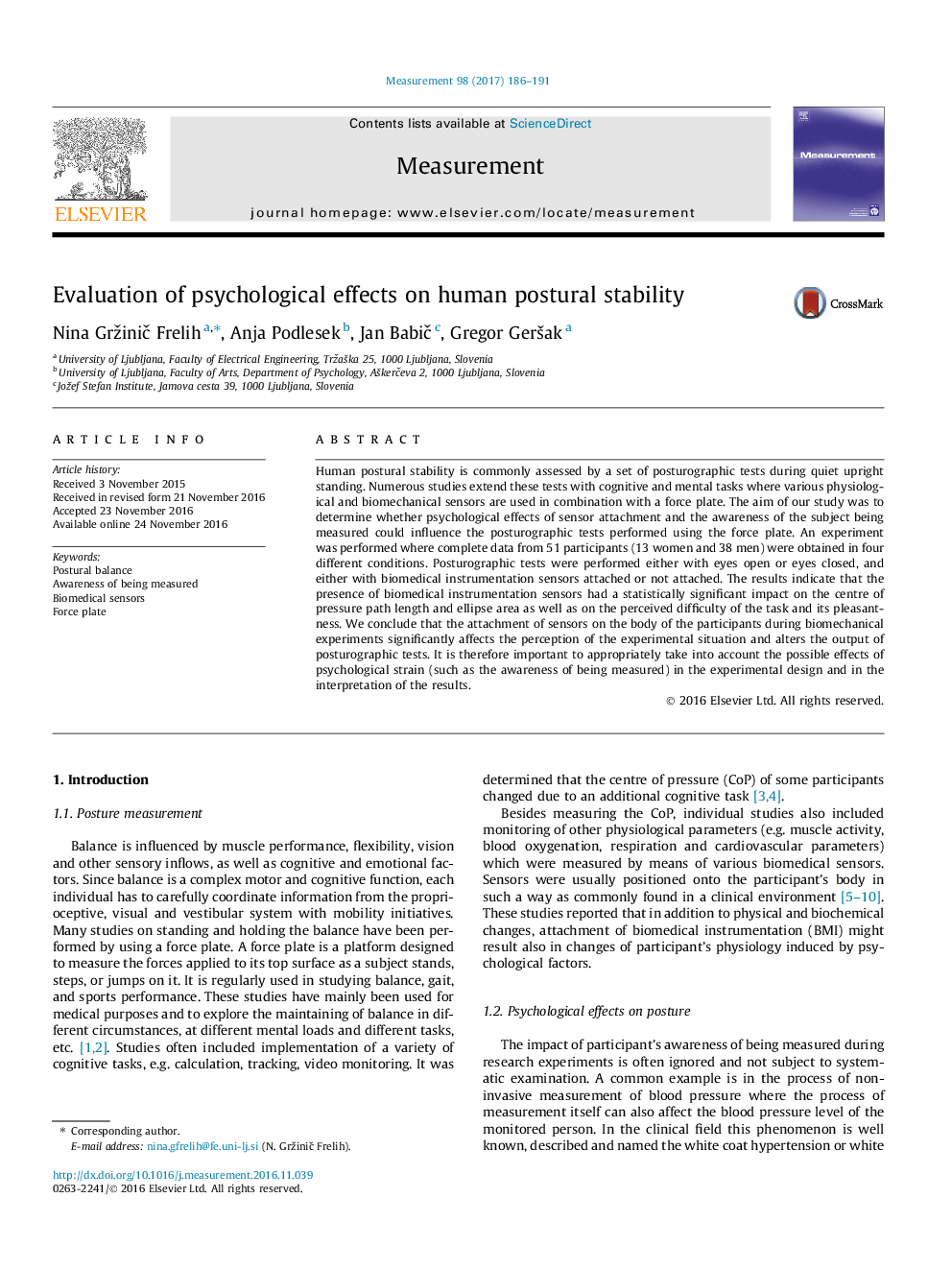| Article ID | Journal | Published Year | Pages | File Type |
|---|---|---|---|---|
| 5006860 | Measurement | 2017 | 6 Pages |
Abstract
Human postural stability is commonly assessed by a set of posturographic tests during quiet upright standing. Numerous studies extend these tests with cognitive and mental tasks where various physiological and biomechanical sensors are used in combination with a force plate. The aim of our study was to determine whether psychological effects of sensor attachment and the awareness of the subject being measured could influence the posturographic tests performed using the force plate. An experiment was performed where complete data from 51 participants (13 women and 38Â men) were obtained in four different conditions. Posturographic tests were performed either with eyes open or eyes closed, and either with biomedical instrumentation sensors attached or not attached. The results indicate that the presence of biomedical instrumentation sensors had a statistically significant impact on the centre of pressure path length and ellipse area as well as on the perceived difficulty of the task and its pleasantness. We conclude that the attachment of sensors on the body of the participants during biomechanical experiments significantly affects the perception of the experimental situation and alters the output of posturographic tests. It is therefore important to appropriately take into account the possible effects of psychological strain (such as the awareness of being measured) in the experimental design and in the interpretation of the results.
Related Topics
Physical Sciences and Engineering
Engineering
Control and Systems Engineering
Authors
Nina GržiniÄ Frelih, Anja Podlesek, Jan BabiÄ, Gregor GerÅ¡ak,
